
NEVER JUDGE ANYONE BECAUSE
You never know how their life is & what they’re going through.
Page description
Discover the importance of empathy and understanding.
Learn why it’s crucial to consider others’ experiences before passing judgment.
Understanding Before Judgment: The Power of Empathy
Before we judge, how often do we stop and think about what the other person is going through? What if we took a moment to walk a mile in their shoes?
Empathy is not just about understanding another’s perspective – it’s about uncovering the complexities behind their actions and choices. It’s about acknowledging that we don’t always see the full picture. We often make snap judgments, without realizing the weight of the circumstances others are facing. This is where true justice begins: not in judgment, but in understanding.
Take the case of Liam Allan, a 22-year-old criminology student, whose life was nearly derailed by a justice system that almost failed him. His case collapsed not because of his guilt, but because of a simple act of disclosure – text messages that revealed the truth. In his case, empathy was not just a virtue, it was a lifesaver.
This page invites you to think differently about judgment. It challenges you to see beyond stereotypes, beyond the surface, and to embrace the full story of a person’s life before making a decision. Because, as we all know, things are not always as they appear.
Begrip Voordat We Oordelen: De Kracht van Empathie
“Wat betekent het echt om een mijl in de schoenen van een ander te lopen?
Het betekent ontdekken wat er misging.
Een rechtssysteem dat bijna faalde voor de 22-jarige criminologie student Liam Allan.
De zaak tegen Liam Allan werd geseponeerd nadat sms-berichten werden ontdekt die zijn onschuld aantoonden.
Deze website gaat over een paradox in het rechtssysteem.
Samenvatting
Dingen zijn niet altijd zoals ze lijken. Soms maken we snelle aannames over mensen, omstandigheden en situaties. We oordelen, labelen en stoppen ze in een doos, zonder te erkennen dat er een veel groter plaatje is. Soms ontmoeten we iemand op een bepaald moment, fase of periode van hun leven en stereotyperen we diegene als een bepaald type. Wees niet zo snel om te oordelen.
Oordeel nooit over iemand, omdat je nooit weet hoe hun leven is en wat ze doormaken.
Wat ging er mis in de zaak van Liam Allan? Openbaarmaking
Het onderwerp van de website gaat over de video van anderhalve minuut (hieronder).
(‘In de schoenen van iemand anders lopen = Ik doe mijn best zoals altijd…’)
What does it really mean
walking a mile in someone else his shoes?
It is finding out what went wrong.
A justice system that nearly failed for the 22-year-old criminology student Liam Allan.
🌿

The website is about a justice paradox.
🌿
Summary
Things are not always as they appear.
Somtimes we make quick assumptions about people, circumstances and situations.
We judge them, label them and put them into a box not recongnizing that there is a much bigger picture.
Sometimes we meet someone paticular, stage or phase of their life and stereotype them to be a certain way.
Don’t be so quick to judge.
Never judging anyone because you never know
how their life is and what they go through.
What went wrong in the case of Liam Allan? Disclosure
The subject of the website is about the one and a half minute video (below).
(walking in someone else his shoes = I try my best as I always do …)
1 Before You Judge Someone, Walk A Mile In Their Shoes | Think Out Loud With Jay Shetty
12 dec. 2019
It’s a short, thought-provoking video with the central message:
“You may never know what someone else is dealing with unless you ask.”
Jay Shetty shares a reflection on how we often judge people based only on what we see — their mood, actions, or appearance — without knowing what they’re going through behind the scenes.
He gives real-life examples:
Someone might seem rude or withdrawn — but maybe they just lost a loved one.
A person might look fine but be battling anxiety or depression.
Someone may seem lazy or distracted — yet they’re carrying invisible burdens.
Jay challenges viewers to stop making assumptions and instead start asking, listening, and empathizing.
He encourages us to replace judgment with curiosity and criticism with compassion.The heart of the message is:
💡 Key themes“Everyone is fighting a battle you can’t see.
So instead of judging… try understanding.”
- Empathy over judgment
- Everyone has a story
- Don’t assume — ask
- Be kind, always
✍️ In his video “Before You Judge Someone, Walk A Mile In Their Shoes”, Jay Shetty reminds us how quick we are to judge others without knowing their story. Behind every face is a hidden struggle — something we may never see unless we take the time to ask. With calm reflection, Jay encourages us to replace assumptions with empathy. The message is simple yet powerful: everyone carries invisible burdens. A little compassion can go a long way.
.
.
Open letter to the convicted members of Reuzegom
by Guillaume Van der Stighelen
Father of Mattias, deceased in 2011
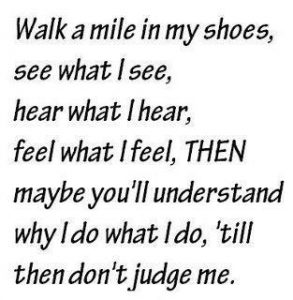
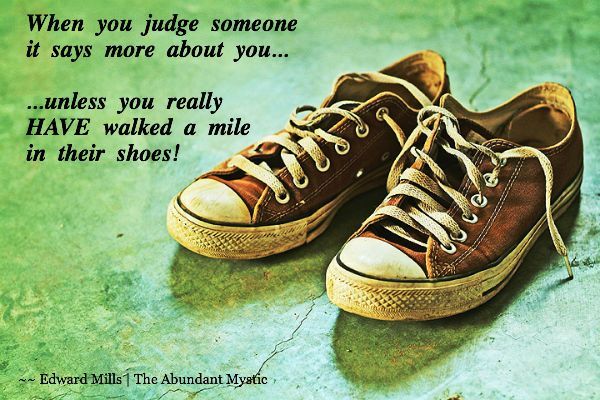
There is a universal question: Is something unclear? This applies to the entire website.
Just honesty in a pure and simple way
Gewoon eerlijkheid in eenvoud
… unless you really HAVE walked a mile in their shoes!
These ten words reflect the core of the ‘searching talk’ by attorney Adam Foss (webpage “You cared about me” …)
Be aware: a case file is often incomplete and may be biased.
When you truly feel the weight of something, when it becomes difficult for you — only then do you begin to understand what’s really going on.
At that point, your response is no longer purely rational.
You cannot talk meaningfully about something you know nothing about.
… unless you really HAVE walked a mile in their shoes!
Only when the experience runs through your very being — when it affects you deeply — can you begin to grasp what it really means.
Thinking about it or sympathising isn’t enough. It’s more than that: it confronts you and leaves a mark.
To ‘really have walked a mile in their shoes’ means to feel the full weight of the world they live in — across time and with the same intensity.
… unless you really HAVE walked a mile in their shoes!
Bovenstaande 10 woorden zijn zowat iets van de inhoud van de ‘searching talk’ door procureur Adam Foss (webpagina “You cared about me” …) onder het menu Preface.
Bemerk een dossier is fragmentarisch en kan gekleurd zijn.
Wanneer je de last van iets voelt en dit moeilijk voor je is, dan besef je wat er gebeurt.
Dan is er niet louter een rationele benadering.
Bemerk je kunt niet wereldvreemd met iets omgaan, m.a.w. spreken over iets waar je niets over weet.
… unless you really HAVE walked a mile in their shoes!
Wanneer in de vezels van jezelf, het hele gebeuren door je heen gaat, kun je beseffen wat het is.
Erover nadenken of meevoelen is niet voldoende. Het is meer dan erover nadenken, het confronteert en het heeft een impact op je.
‘You really have walked a mile in their shoes’ is het gewicht voelen van de wereld waarin het gebeuren zich voordoet, in lengte van tijd en met dezelfde intensiteit.
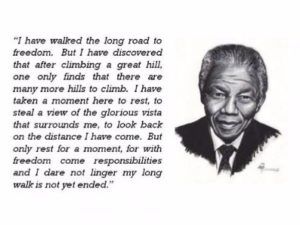
2 Before You Judge Someone – WATCH THIS | by Jay Shetty
Please Enjoy
Before you judge someone,
walk a mile in their shoes
🧾 Summary of Jay Shetty’s video
Jay Shetty presents a modern dramatization of “The Cookie Thief” to convey a powerful lesson about judgment, assumptions, and humility.
🌿
In the video:
A woman is sitting in a public space (such as a train station or airport lounge).
She notices a man next to her apparently taking cookies from her bag.
She’s visibly annoyed and becomes increasingly angry as the man casually eats cookie after cookie — even offering her one with a smile.
Finally, when she boards her train (or flight), she opens her own bag… and finds her unopened packet of cookies still there.
She realizes, too late, that she was the one eating his cookies the whole time.
Jay Shetty narrates the moral:
🌿
“We judge others without knowing the full story. We’re so quick to assume the worst in others, while often being blind to our own mistakes.”
🌿
💡 Key Messages
- Don’t jump to conclusions — things are not always as they seem.
- Humility is essential — we all make mistakes.
- Kindness can exist even when someone is being wronged — the man in the story was patient and even generous.
- Awareness matters — slowing down and observing fully can prevent embarrassment or harm.
🌿
✍️ Optional Text
In Jay Shetty’s video “Before You Judge Someone”, a seemingly ordinary moment becomes a profound life lesson.
- Inspired by The Cookie Thief, the story reminds us how easily we misjudge others based on incomplete or false assumptions.
- What we think is rude or unjust might actually be our own misunderstanding.
- The video challenges viewers to reflect before reacting — to pause, observe, and extend grace, even when the situation feels unfair.
- Sometimes, the only thing that needs to change is our perspective.
Gedreven door armoede, vergeten door de samenleving.
In de Filipijnen belanden talloze kinderen op
The phrase “Before you judge someone, walk a mile in their shoes” is an old saying that conveys the idea of empathy and understanding. It suggests that one should not pass judgment on others without first understanding their perspective and experiences. The key points of this saying are:
Avoid hasty judgment: The saying reminds us not to rush to judge others without taking the time to understand their circumstances, emotions, and motivations. It cautions against making snap judgments based on appearances or limited information.
Empathy and compassion: The saying emphasizes the importance of empathy, which involves putting oneself in someone else’s shoes and trying to understand their feelings and experiences. It encourages compassionate understanding instead of harsh judgment.
Perspective-taking: The saying highlights the need to view situations from different perspectives. By imagining oneself in another person’s situation, we can gain insight into their thoughts, emotions, and challenges, which can help us develop a more nuanced and empathetic understanding of them.
Cultivating understanding: The saying suggests that taking the time to truly understand others can lead to greater compassion, tolerance, and acceptance. It promotes open-mindedness and a willingness to suspend judgment in order to gain insight into others’ experiences.
Avoiding bias: The saying serves as a reminder to be mindful of our own biases and prejudices when forming judgments about others. By walking in their shoes, we can challenge our own assumptions and preconceived notions, and approach others with a more objective and fair-minded attitude.
Overall, the key points of “Before you judge someone, walk a mile in their shoes” emphasize the importance of empathy, understanding, and open-mindedness in our interactions with others, and discourage hasty and harsh judgments. It encourages us to be more compassionate, considerate, and tolerant towards others, and promotes a more inclusive and understanding attitude in our relationships and interactions with others.
3 Too Quick To Judge (Touching Short-Film)
30 aug. 2014
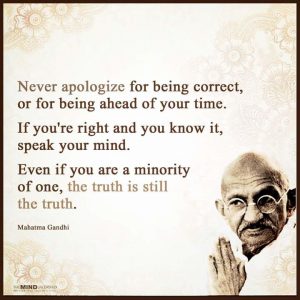

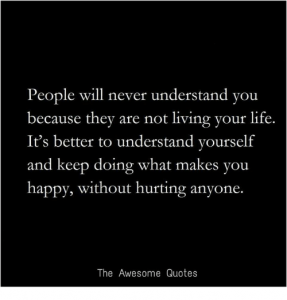
He himself was once a street kid
4 Filipino children driven to the streets by crushing poverty
7 okt. 2009
Driven by poverty, forgotten by society.
In the Philippines, countless children find themselves living and surviving on the streets — not by choice, but by circumstance.
This video captures the harsh reality of young lives shaped by hunger, neglect, and the daily fight to endure.
Let us not look away.
Gedreven door armoede, vergeten door de samenleving.
In de Filipijnen belanden talloze kinderen op straat – niet uit keuze, maar uit noodzaak.
Deze video laat de harde realiteit zien van jonge levens die worden gevormd door honger, verwaarlozing en de dagelijkse strijd om te overleven.
Laten we niet wegkijken.
5 Bert Keizer – Studium Generale – Universiteit Twente
27 mei 2014
🎙️ About the video
Bert Keizer – Studium Generale – University of Twente (27 May 2014)
In this lecture, held as part of Studium Generale at the University of Twente, Bert Keizer — a nursing home physician and philosopher — shares insights from his years of experience in elderly care. He reflects on the existential dimensions of dying and suffering, and offers a sharp critique of the overly medical, scientific approach often taken in end-of-life care.
🧩 Key themes
The reality of dying
Keizer does not describe the nursing home as “hell,” but rather as a harsh confrontation with human suffering — a place where scientific pretensions are shattered by the rawness of life.Ethics, euthanasia, and autonomy
Having worked with people suffering from dementia and served as a SCEN doctor (euthanasia consultation), Keizer advocates for humane and compassionate accompaniment of those nearing the end of life.A philosophical view on body and mind
As a philosopher, Keizer explores the connection between heart, mind, and brain, pointing out the limits of purely biological explanations when it comes to human experience.Critique of medical culture
He criticizes the “diagnosis addiction” seen in modern medicine — the tendency of some doctors to pursue excessive intervention, even when it no longer adds quality to the lives of very elderly or demented patients.🌿
✍️ In his lecture “Bert Keizer – Studium Generale – University of Twente”, Keizer — both physician and philosopher — offers profound insights into the world of elderly care. He shows how the nursing home becomes a merciless mirror of the human condition, where medical logic often falls short in the face of existential suffering. Keizer calls for a more humane and ethically grounded approach — one that prioritizes meaning, autonomy, and compassion. His philosophical reflections on body and mind remind us that human experience cannot be reduced to biological mechanisms alone. This lecture confronts us with meaning, vulnerability, and the moral responsibility to practice empathy in medical care.
🎙️ Over de video
Bert Keizer – Studium Generale – Universiteit Twente (27 mei 2014)
In deze lezing, gehouden in het kader van Studium Generale aan de Universiteit Twente, deelt Bert Keizer — verpleeghuisarts en filosoof — inzichten uit zijn jarenlange ervaring in de ouderenzorg. Hij reflecteert op de existentiële dimensies van lijden en sterven, en levert scherpe kritiek op de vaak overdreven medische en wetenschappelijke benadering van de laatste levensfase.
🧩 Kernpunten
De realiteit van het sterven
Keizer omschrijft het verpleeghuis niet als een “hel,” maar als een harde confrontatie met menselijk lijden — een plek waar wetenschappelijke pretenties worden verbrijzeld door de rauwe werkelijkheid van het leven.Ethiek, euthanasie en autonomie
Op basis van zijn werk met mensen met dementie en zijn rol als SCEN-arts (euthanasie-consulent), pleit Keizer voor een humane en meelevende begeleiding van mensen die het einde van hun leven naderen.Een filosofische kijk op lichaam en geest
Als filosoof onderzoekt Keizer de samenhang tussen hart, geest en hersenen, en wijst hij op de beperkingen van louter biologische verklaringen voor de menselijke ervaring.Kritiek op de medische cultuur
Hij bekritiseert de “diagnoseverslaving” in de moderne geneeskunde — de neiging van sommige artsen tot overbehandeling, zelfs wanneer dit geen kwaliteit meer toevoegt aan het leven van zeer oude of dementerende patiënten.✍️ In zijn lezing “Bert Keizer – Studium Generale – Universiteit Twente” biedt Keizer — arts én filosoof — diepgaande inzichten in de wereld van ouderenzorg. Hij laat zien hoe het verpleeghuis fungeert als een genadeloze spiegel van de menselijke conditie, waar medische logica vaak tekortschiet tegenover existentiële nood. Keizer pleit voor een menselijker en ethisch verankerde benadering — één die betekenis, autonomie en mededogen centraal stelt. Zijn filosofische beschouwingen over lichaam en geest herinneren ons eraan dat de menselijke ervaring niet te herleiden is tot louter biologische mechanismen. Deze lezing confronteert ons met vragen over betekenis, kwetsbaarheid en de morele plicht om empathie te tonen in de medische zorg.
I Am Not A Rapist | The Horrific Consequences of False Rape Allegations | True Crime Fix
Summary: “I Am Not A Rapist | The Horrific Consequences of False Rape Allegations”
This documentary explores the harrowing story of three young men who were falsely accused of rape, and the devastating consequences they faced as a result of these allegations.
1. The Impact of False Rape Allegations
The video opens with the personal experiences of the three men, detailing how they were wrongfully accused of rape. The emotional and social toll of these false accusations is made clear, with each man describing how their lives were turned upside down by the mere allegation.
2. The Social and Legal Consequences
It examines how false rape accusations can lead to public shaming, legal battles, and the loss of relationships, career opportunities, and personal dignity. The stigma surrounding rape allegations means that the mere accusation can destroy reputations even when the accused is later proven innocent.
3. The Psychological Effects on the Accused
The documentary delves into the psychological trauma experienced by those falsely accused, including feelings of shame, isolation, and a deep sense of injustice. It emphasizes how these men struggled to rebuild their lives after their names were cleared, facing societal prejudice and an ongoing battle to regain their self-esteem.
4. The Role of Media in Amplifying False Allegations
The video highlights how the media plays a significant role in amplifying false rape accusations. With sensational headlines and the rush to judgment, innocent men can be vilified before they ever have a chance to defend themselves in court. It discusses the dangers of media sensationalism and the need for responsible reporting.
5. The Challenges in Proving Innocence
A significant portion of the video explores the difficulties in proving innocence after a false accusation. It discusses how, even when the accuser’s claims are shown to be false, the emotional and social damage persists. The video highlights how the legal system sometimes fails to provide adequate remedies for those wrongfully accused.
6. Legal Reforms and the Need for Justice
Towards the end, the documentary calls for reform in the legal system to better protect the rights of the accused while ensuring that actual victims of rape receive justice. It stresses the importance of a fair trial, the presumption of innocence, and the need to hold accusers accountable if they make false claims.
7. Moving Forward: Restoring Reputations and Healing
Finally, the video touches on how the three men have tried to rebuild their lives after the accusations were proven false. It discusses the long road to recovery, not just legally but emotionally, and the importance of public acknowledgment and support for those who suffer from false allegations.
Samenvatting: “I Am Not A Rapist “
De Hachelijke Gevolgen van Valse Verkrachtingsaanklachten
Deze documentaire vertelt het aangrijpende verhaal van drie jonge mannen die ten onrechte van verkrachting werden beschuldigd en de verwoestende gevolgen die ze ondervonden als gevolg van deze beschuldigingen.
1. De Impact van Valse Verkrachtingsaanklachten
De video begint met de persoonlijke ervaringen van de drie mannen, waarin ze vertellen hoe ze ten onrechte van verkrachting werden beschuldigd. De emotionele en sociale impact van deze valse beschuldigingen wordt duidelijk, waarbij elke man uitlegt hoe hun leven volledig op zijn kop werd gezet door alleen al de beschuldiging.
2. De Sociale en Juridische Gevolgen
De documentaire onderzoekt hoe valse verkrachtingsaanklachten kunnen leiden tot publieke veroordeling, juridische strijd, verlies van relaties, carrièrekansen en persoonlijke waardigheid. De stigmatisering rondom verkrachtingsaanklachten betekent dat de beschuldiging alleen al de reputatie kan vernietigen, zelfs wanneer de beschuldigde later onschuldig blijkt te zijn.
3. De Psychologische Effecten op de Beschuldigden
De documentaire gaat in op de psychologische trauma’s die degenen die ten onrechte beschuldigd zijn ervaren, waaronder gevoelens van schaamte, isolatie en een diep gevoel van onrecht. Er wordt benadrukt hoe deze mannen moeite hadden om hun leven weer op te bouwen nadat hun onschuld werd bewezen, en hoe ze bleven kampen met maatschappelijke vooroordelen en de voortdurende strijd om hun eigenwaarde terug te krijgen.
4. De Rol van de Media in het Vergroten van Valse Beschuldigingen
De video belicht hoe de media een belangrijke rol spelen in het vergroten van valse verkrachtingsaanklachten. Door sensationele koppen en een haastige veroordeling kunnen onschuldige mannen worden gevild, voordat ze überhaupt de kans krijgen zichzelf in de rechtszaal te verdedigen. Het wordt besproken hoe gevaarlijk media-sensationalisme kan zijn en de noodzaak voor verantwoordelijke berichtgeving.
5. De Uitdagingen bij het Bewijzen van Onschuld
Een belangrijk deel van de documentaire behandelt de moeilijkheden die zich voordoen bij het bewijzen van onschuld na een valse beschuldiging. Er wordt besproken hoe, zelfs wanneer de beschuldigingen van de aanklager onterecht blijken te zijn, de emotionele en sociale schade blijft bestaan. De video benadrukt hoe het rechtssysteem soms faalt in het bieden van adequate remedies voor degenen die ten onrechte beschuldigd zijn.
6. Juridische Hervormingen en de Noodzaak van Gerechtigheid
Tegen het einde roept de documentaire op tot hervormingen in het rechtssysteem om de rechten van de beschuldigde beter te beschermen, terwijl de werkelijke slachtoffers van verkrachting wel gerechtigheid ontvangen. Er wordt gepleit voor een eerlijk proces, de onschuldpresumptie en de noodzaak om aanklagers verantwoordelijk te houden wanneer ze valse claims maken.
7. Verder Gaan: Het Herstellen van Reputaties en Genezing
Tot slot bespreekt de video hoe de drie mannen hebben geprobeerd hun leven weer op te bouwen nadat de beschuldigingen ten onrechte bleken te zijn. Het behandelt de lange weg naar herstel, niet alleen juridisch maar ook emotioneel, en het belang van publieke erkenning en steun voor degenen die lijden onder valse beschuldigingen.
📚 Who is Liam Allan?
Liam Allan was a 22-year-old criminology student at Greenwich University in 2016.
He had no prior criminal record and was aiming for a future in law enforcement or the justice system.
🚨 The Allegation
He was falsely accused by a former partner of 12 counts of rape and sexual assault.
The allegations led to a nearly two-year police investigation.
He was charged and brought to trial—despite insisting on his innocence and the existence of messages that could clear his name.
🗂️ The Turning Point — Day 3 of the Trial
The trial began at Croydon Crown Court in December 2017.
On the third day of the trial, during cross-examination, the defence barrister Jerry Hayes raised concerns about the non-disclosure of text messages.
This prompted the disclosure officer to finally hand over a download of more than 40,000 messages from the complainant’s phone.
These messages contradicted the prosecution’s case entirely—showing consensual and even affectionate exchanges long after the alleged assaults.
⚖️ Collapse of the Case
Once the defence received and reviewed the messages, the prosecution offered no evidence.
The case collapsed mid-trial, and Liam was formally acquitted.
The trial did not collapse before it began—it fell apart after it had already started, due to failures in evidence disclosure.
🧠 Aftermath
Liam described the experience as devastating:
He lived for almost two years under the shadow of being labeled a rapist.
He suffered severe psychological stress, media attention, and a lasting public stigma.
Despite the acquittal, no apology was issued by the police or CPS.
“No one said sorry. I just wanted someone to say, ‘We made a mistake.’”
— Liam Allan
📢 Impact on the Legal System
His case led to national outcry and a review of all rape and serious sexual assault prosecutions in England and Wales.
The CPS and Metropolitan Police came under scrutiny for systemic disclosure failures.
His case triggered:
A Justice Select Committee review
Suspension of the disclosure officer
Renewed calls for fairness and balance in how accusations are handled
Summary
Liam Allan’s case is one of the most high-profile examples in the UK of a young man nearly losing his freedom and future because vital exonerating evidence was ignored and withheld. It highlights deep flaws in the justice system’s treatment of both accusers and the accused.
🎓 Wie is Liam Allan?
Liam Allan was een 22-jarige student criminologie aan de Universiteit van Greenwich in Londen, met plannen voor een carrière in de strafrechtelijke sector. Hij had geen strafblad en leidde een normaal studentenleven — tot zijn wereld plotseling instortte.
⚖️ Valse beschuldiging van verkrachting
In 2016 werd Liam beschuldigd van 12 gevallen van verkrachting en aanranding door een voormalige partner.
Ondanks zijn ontkenningen en aanwijzingen dat er berichten bestonden die hem zouden kunnen vrijpleiten, werd hij:
twee jaar lang onderzocht,
uiteindelijk aangeklaagd,
en voor de rechter gebracht in december 2017.
📱 Beslissend bewijs kwam pas op de 3e procesdag
Tijdens de derde dag van het proces, drong zijn advocaat erop aan dat de politie de meer dan 40.000 tekstberichten van de aanklaagster alsnog vrijgaf.
Toen deze berichten eindelijk beschikbaar kwamen, bleek dat:
De seksuele relatie wederzijds en vrijwillig was.
De aanklaagster Liam na de vermeende incidenten nog liefdevolle berichten stuurde.
Er berichten waren waarin ze toegaf dat het niet tegen haar wil was gebeurd.
Deze berichten hadden vanaf het begin beschikbaar moeten zijn. De politie had ze gezien, maar noemde ze “niet relevant”.
🛑 Proces ingestort – maar pas nádat het begonnen was
Nadat de berichten eindelijk openbaar waren gemaakt, stortte het proces meteen in elkaar.
De aanklager liet de zaak vallen en Liam werd vrijgesproken.📌 Het proces werd dus niet afgelast vóór aanvang, maar pas op de derde dag beëindigd — terwijl Liam al in de beklaagdenbank zat.
🧠 De gevolgen voor Liam
Hoewel hij juridisch vrijuit ging, bleef Liam achter met:
Psychische schade, angst en wantrouwen in justitie.
Een verstoord studentenleven.
Geen enkele verontschuldiging van politie of justitie.
“Ik wilde gewoon dat iemand ‘sorry’ zei. Dat is nooit gebeurd.”
— Liam Allan
🔍 Gevolgen voor het Britse rechtssysteem
Liams zaak veroorzaakte grote ophef in het Verenigd Koninkrijk. Het leidde tot:
Een landelijk onderzoek naar bewijsvoering in zedenzaken.
Opschorting van de betrokken rechercheur.
Hervormingen binnen het Openbaar Ministerie (CPS) over de manier waarop digitaal bewijs wordt behandeld.
Zijn verhaal legde bloot hoe makkelijk iemand ten onrechte beschuldigd kan worden — en hoe zwak het systeem was in het beschermen van onschuldige verdachten.
📌 Samenvattend
Liam Allan is een van de bekendste voorbeelden in het VK van iemand die bijna zijn vrijheid, reputatie en toekomst verloor door een valse beschuldiging van verkrachting en ernstige fouten binnen politie en justitie.
6 JFL Hidden Camera Pranks & Gags: Free Car Scrubbing